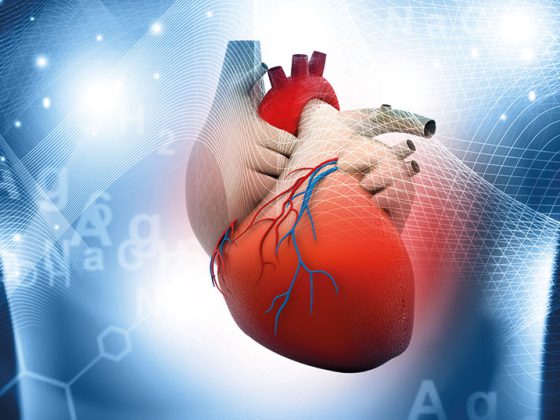Tübingen researchers find cause for dangerous activation of blood clotting. In focus: antibodies that activate platelets in an uncontrolled manner
Already in the first Corona pandemic wave, Covid 19 patients with a severe or fatal disease course experienced severe disturbances of the coagulation system with complications such as deep vein thrombosis and pulmonary embolism, and even organ failure and death. Experts estimate that about 20 percent of Covid 19 patients have severe coagulation disorders resulting in venous thromboembolism as a concomitant disease. The reason for the frequent formation of thromboses in Covid 19 patients is assumed by physicians to be an excessive coagulability of the blood, hypercoagulation, which they attribute to an inflammatory reaction in the course of Covid 19 disease. The vascular occlusions can also lead to complications such as heart attack and stroke. Increased activation of the coagulation system in Covid 19 patients usually begins four days after hospitalization, as reported by physicians at the University Hospital in Tübingen. “In blood analyses of intensive care patients with severe covid-19 infection, we have seen that blood clot formation takes a shorter time in them and that clotting factors are more strongly activated than in other hospitalized patients,” reports Prof. Tamam Bakchoul, MD, Medical Director of the Institute for Clinical and Experimental Transfusion Medicine (IKET) at the University Hospital of Tübingen in the Heart Foundation’s research video at https://youtu.be/7adJdF7E-mA
As part of the research project “Tübingen Study on Coagulation Disorders in Covid-19 Patients”, funded by the German Heart Foundation with 101,000 euros, researchers led by Bakchoul and his colleague Prof. Dr. med. Peter Rosenberger, Medical Director of the Clinic for Anesthesiology and Intensive Care Medicine in Tübingen, have been able to bring more clarity to the disease mechanisms of changes in the coagulation system of severely ill Covid-19 patients that lead to the complications. The researchers have also come closer to specific therapeutic approaches to protect against thromboembolism. “Standard therapies with blood thinners such as acetylsalicylic acid, or ASA, alone cannot inhibit this prothrombotic state in covid-19 patients requiring intensive care,” said coagulation expert Bakchoul. In the renowned scientific journal “Blood” (1), the researchers concluded, among other things, that SARS-CoV-2 viruses activate platelets at least via an indirect pathway in the blood of patients. “This indirect route is through the antibodies that are released in far too high numbers in the course of a massive immune response to SARS-CoV-2. These do not bind to the coronavirus, but to the platelets and activate them,” says Bakchoul. The research findings of the Tübingen physicians are of enormous importance, especially for people with cardiovascular diseases, who per se have an increased thromboembolic risk. “The findings of the Tübingen physicians could help to better protect at-risk groups with Covid 19 disease from complications at an early stage, for example, through thrombosis prophylaxis,” emphasizes cardiologist and intensive care physician Prof. Thomas Voigtländer, MD, vice chairman of the board of the German Heart Foundation. Covid 19 research grant information is available at www.herzstiftung.de/COVID-19-Projektfoerderung.html.
Thrombosis risk particularly high in Covid 19 inpatients
The risk of thrombosis is particularly increased in hospitalized Covid-19 patients because blood flows more slowly in the vessels when patients are permanently recumbent. And in the cardiovascularly predisposed Covid 19 patients, vessels are partially pre-damaged. “This alone outweighs the prothrombotic factors over the antithrombotic factors,” said Bakchoul, a physician-researcher. The Tübingen research team examined certain laboratory values, including thrombosis markers such as D-dimer, which is formed when clots have formed in blood vessels and during the body’s own dissolution of blood clots. They also examined markers for platelet cell death. To do this, they analyzed blood from 21 intensive care unit (ICU) covid-19 patients and compared the samples to blood from 18 healthy individuals in the control group and four non-intensive care covid-19 patients. In particular, the results showed that antibody-mediated cell death of platelets in the blood of ICU Covid-19 patients increased their thromboembolic risk.
“Helpers” out of control: Antibodies also target platelets
In the course of their investigations, the Tübingen researchers also found that in severe covid-19 courses, the patients’ immune system reacts to the inflammatory event with an excessive immune response (cytokine storm) (thrombo-inflammation): the body produces uncontrolled defense substances (antibodies) against the SARS-CoV-2 virus. Many of the antibodies are without a clear binding site. “We suspect that antibodies have a similar binding site to the surface of platelets as to the surface of SARS-CoV-2 viruses.” When the antibodies bind to the platelets, they trigger complex changes there, resulting in cell death (apoptosis) in some of the platelets. In the other, platelets alter their cell surface to release procoagulant factors and promote thrombosis. “So the stronger the immune response to SARS-CoV-2, the higher the risk of platelet activation,” Bakchoul explains.
Thrombosis prophylaxis by injection?
With their new findings, the Tübingen physicians hope to develop new therapies for the prevention of thrombosis, especially in covid-19 patients requiring intensive care. In doing so, Bakchoul and colleagues are building on substances already approved for other diseases that can be used to prevent platelet release and thereby covid-19-mediated clot activation. “Our goal is to screen Covid-19 patients for coagulation parameters and platelet markers while they are still in the normal ward, and to treat them prophylactically with anticoagulant medications at appropriate doses.”
(1) Althaus K. et al, Antibody-induced procoagulant platelets in severe COVID-19 infection. Blood (2021) 137 (8): 1061-1071. https://doi.org/10.1182/blood.2020008762
Original publication:
Althaus K. et al, Antibody-induced procoagulant platelets in severe COVID-19 infection. Blood (2021) 137 (8): 1061-1071. https://doi.org/10.1182/blood.2020008762











